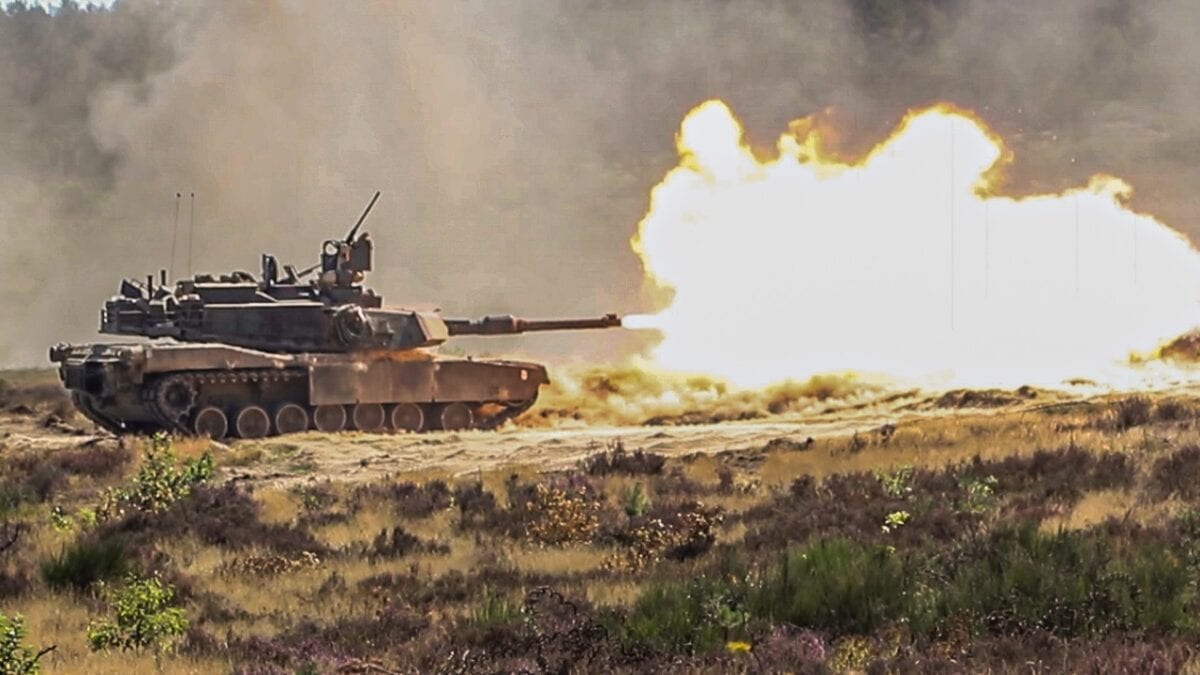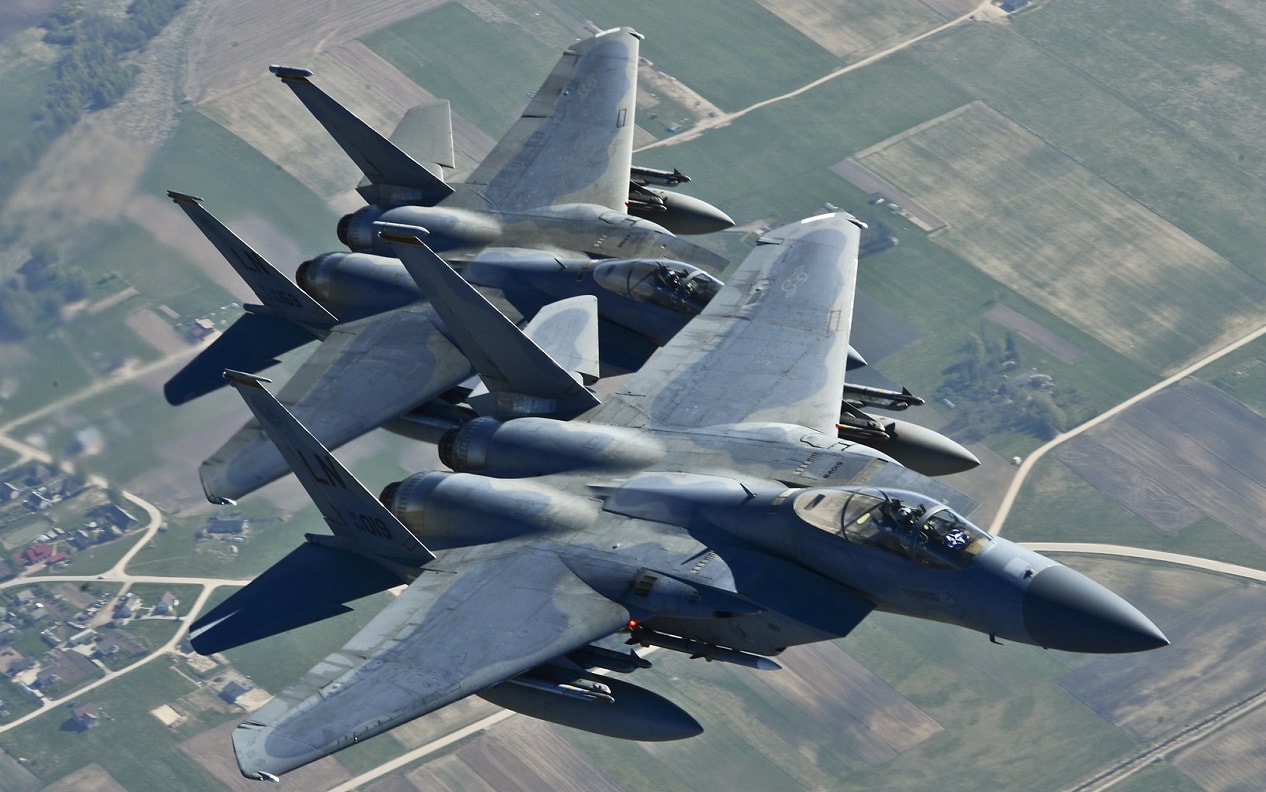The U.S. Should not Bring Ukraine into NATO by Whatever Name – With war still raging between Russia and Ukraine, Kyiv is looking for future military allies. “We are working to ensure that the strongest subjects of the free world become guarantors of the security of our state,” declared Ukrainian President Volodymyr Zelensky last week.
But that is just Kyiv’s interim goal. Andriy Yermak, head of the presidential office, urged the creation of what he called the Kyiv Security Compact until NATO membership is granted. He explained: “In order to successfully implement these tasks, Ukraine must get a guaranteed safety after the war. This means that we should receive reliable international security guarantees for the time period until Ukraine becomes a full member of the EU and NATO.”
Along with former NATO Secretary General Anders Fogh Rasmussen, fellow co-chair of the Working Group On International Security Guarantees for Ukraine, Yermak released a detailed plan to create the equivalent of NATO membership until the real deal was available. The report explained: “Ukraine’s aspiration to join NATO and benefit from its mutual defense arrangements is safeguarded in its Constitution. This aspiration is the sovereign decision of Ukraine. In the interim period Ukraine needs iron-clad security guarantees. These will come predominantly—though not exclusively—from NATO countries.”
The interim actually sounds like NATO-plus, with Kyiv, not its guarantors, setting policy. The paper envisions “a multi-decade effort of sustained investment in Ukraine’s defense industrial base, scalable weapons transfers and intelligence support from allies, intensive training missions and joint exercises under the European Union and NATO flags.” Moreover, the allies, starting with the US but reaching Turkey and even Australia, would make “a range of commitments” that would “be binding based on bilateral agreements, but brought together under a joint strategic partnership document—called the Kyiv Security Compact.” Indeed, leaving this pact to join the transatlantic alliance might be a step-down.
Ukraine’s desire for protection by America and the others is not new. In 2008 the George W. Bush administration, fresh from its catastrophic invasion of Iraq, which resulted in hundreds of thousands of Iraqi deaths, went looking for other wars to fight. The administration debated intervening in the short-lived Russo-Georgia war, triggered by Georgian attacks on Russian troops in the breakaway territory of South Ossetia. This deranged proposal likely would have resulted in war with Moscow. Thankfully, good sense prevailed. However, Washington still pushed NATO into promising eventual membership to Ukraine and Georgia, even though the Europeans made clear their final approval would not be forthcoming.
After the Bush administration mercifully faded into history, US backing for bringing the two states in NATO ended. But rather than level with Kyiv and Tbilisi, admitting that there was no desire in America or Europe to defend either country, allied officials consistently lied, routinely proclaiming how anxious they were to welcome the two states into the transatlantic alliance as soon as membership criteria were met, which, however, would be never. Leading up to Russia’s invasion of Ukraine in February the US and other NATO members repeated the same deceitful refrain.
Allied governments understood that the purpose of NATO was to defend their peoples, not offer military charity to security supplicants. Neither Georgia nor Ukraine was vital for America’s or Europe’s defense. And, as events proved, adding them would risk war. Both mattered greatly to Russia. Indeed, inducting them would be the final violation of multiple pledges made to the governments of Mikhail Gorbachev and Boris Yeltsin that the alliance would not expand to Russia’s borders.
Just as NATO refused to add them before the Russian invasion, no member of the alliance intervened afterwards on Ukraine’s behalf. This highlighted the West’s persistent dishonesty toward Ukraine, especially after the West’s reckless, dishonest policies toward Russia helped bring on the conflict. Surely if the allies were just waiting for the right moment to admit Ukraine, which would mean being willing to fight for the Ukrainian people, NATO should have acted to stop Moscow’s criminal invasion. Why didn’t the alliance intervene directly? Because its members recognized that going to war with Russia over Kyiv was not in their interest.
If the NATO members don’t believe that Ukraine is worth war when it is under attack, with its very independence being threatened, cities being ravaged, and people being driven from their homes, why would the US or Europe commit to fight on Kyiv’s behalf in the future? Especially since the allies have found the perfect solution: aid Ukraine in fighting Russia to the last Ukrainian. The US and Europeans are getting everything they want and more—preserving Kyiv as a quasi-ally and weakening Moscow as a potential adversary—without losing a single soldier or civilian.
Staying out of the war is particularly important now. In light of Ukraine’s successful counterattack near Kharkiv, Zelensky talked grandly about retaking Crimea. The Putin government responded with its own escalation. President Vladimir Putin declared a “partial mobilization,” called up reservists, and threatened to “use all the means at our disposal,” assumed to include nuclear weapons, to defend Russia. No NATO member wants to be involved if both sides are raising the stakes.
If the allies won’t join in now, however, why would they support the Kyiv Security Compact in the future?
That goes double for the American people. Although Washington is filled with warrior wannabes ever ready to send other people off to fight and die, there is little popular support to add Ukraine to America’s lengthy list of defense dependents, whose main role is to agree to be defended. Even now, with the Europeans talking about doing more, the Biden administration is adding US reinforcements to Europe, diminishing pressure on other members to act. By the time the war concludes, European NATO members are likely to return to business as usual, effectively leaving their defense to Washington.
Which is another reason for the US to reject proposals to add Ukraine to NATO, or a NATO look-alike, in the future. Americans don’t want to join the Russo-Ukraine killfest. They even question the current level of US military assistance, believing it should not outpace that provided by the Europeans, who have so much more at stake while doing so little to defend themselves. Washington should finally begin emphasizing the interests of Americans over that of foreign states.

U.S. Army M1 Abrams Main Battle Tank variation fires at a target at Bucierz Range at Drawsko Pomorskie Training Area, Poland, August 11, 2020. DEFENDER-Europe 20 was designed as a deployment exercise to build strategic readiness in support of the U.S. National Defense Strategy and NATO deterrence objectives. In response to COVID-19, DEFENDER-Europe 20 was modified in size and scope. Phase I of the modified DEFENDER-Europe 20 was linked to exercise Allied Spirit, which took place at Drawsko Pomorskie Training Area, Poland, June 5-19 with approximately 6,000 U.S. and Polish Soldiers. In phase II of the modified DEFENDER-Europe 20, a U.S.-based combined arms battalion will conduct an emergency Deployment Readiness Exercise to Europe July 14-Aug. 22.
The Ukrainian people are stuck in a bad neighborhood. But the US government’s chief responsibility is to the American people, which means keeping them out of unnecessary wars involving interests that are not critical. As in Ukraine. US officials also should level with the Zelensky government. Whatever the outcome of the current conflict, there should be no Kyiv Security Compact or its equivalent. If war breaks out again, the Yanks still won’t be coming.
A 1945 Contributing Editor, Doug Bandow is a senior fellow at the Cato Institute, specializing in foreign policy and civil liberties. He worked as special assistant to President Ronald Reagan and editor of the political magazine Inquiry. He writes regularly for leading publications such as Fortune magazine, National Interest, the Wall Street Journal, and The Washington Times. Bandow speaks frequently at academic conferences, on college campuses, and to business groups. Bandow has been a regular commentator on ABC, CBS, NBC, CNN, Fox News, and MSNBC. He holds a JD from Stanford University.

